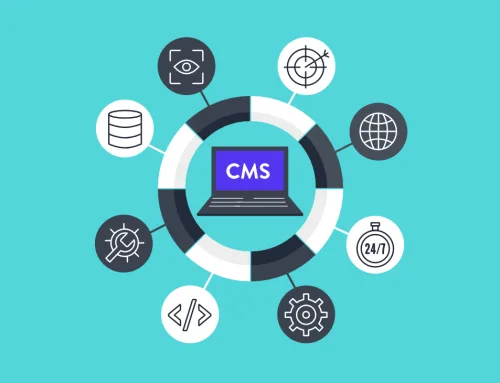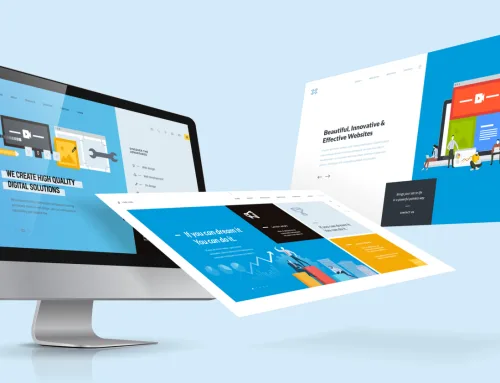Creating and maintaining a successful website in 2024 requires careful planning, design, optimization, and ongoing maintenance. Here’s a comprehensive checklist to guide you:
1. Planning and Strategy
- Define Purpose and Goals: Clarify your website’s purpose (e.g., e-commerce, portfolio) and set measurable goals (e.g., lead generation).
- Target Audience: Identify and understand your audience’s needs, preferences, and behaviors.
- Competitor Analysis: Analyze competitor websites to identify strengths and opportunities.
- Content Strategy: Plan content that aligns with your brand and goals, including text, images, and videos.
2. Design and User Experience (UX)
- Responsive Design: Ensure your site is optimized for all devices (mobile, tablet, desktop).
- Intuitive Navigation: Design user-friendly navigation that guides visitors easily.
- Brand Consistency: Use consistent colors, fonts, and design elements.
- Accessibility: Make your site accessible to everyone, including those with disabilities.
- Interactive Elements: Use buttons, forms, and animations to engage users.
3. Content
- High-Quality Content: Provide relevant, valuable content tailored to your audience.
- SEO Optimization: Optimize your content with keywords, meta descriptions, and headers.
- Multimedia: Incorporate images, videos, infographics, and more.
- Content Management System (CMS): Select a CMS like WordPress or Joomla that suits your needs.
4. Technical SEO
- Fast Loading Speed: Optimize for speed using compressed images and minified code.
- Mobile Optimization: Ensure your site functions well on mobile devices.
- Secure Sockets Layer (SSL): Implement SSL for secure data transmission.
- Core Web Vitals: Focus on loading speed, interactivity, and visual stability.
- XML Sitemap: Submit an XML sitemap for better indexing by search engines.
5. E-commerce Features (if applicable)
- Product Pages: Create detailed product pages with images, descriptions, and reviews.
- Checkout Process: Design a seamless and secure checkout process.
- Security: Protect customer data with SSL and other security measures.
- Inventory Management: Use tools to track inventory in real time.
6. Functionality
- Cross-Browser Compatibility: Test across major browsers (Chrome, Firefox, Safari, Edge).
- Error-Free: Regularly check for broken links or missing elements.
- Interactive Features: Include forms, chatbots, and interactive tools.
- Third-Party Integrations: Ensure smooth integration with services like analytics or payment gateways.
7. Analytics and Monitoring
- Google Analytics Setup: Track traffic, behavior, and performance.
- Heatmaps: Use heatmap tools to analyze user interactions.
- Conversion Tracking: Measure the success of CTAs and sales funnels.
- Regular Audits: Conduct SEO and content audits regularly.
8. Legal Compliance
- Privacy Policy and Terms: Include clear privacy policies and terms of service.
- Cookie Consent: Implement cookie consent banners to comply with regulations like GDPR.
- Accessibility Compliance: Ensure your site meets accessibility standards like WCAG 2.1.
9. Maintenance and Updates
- Regular Backups: Set automatic backups to secure your data.
- Software Updates: Keep your CMS, plugins, and themes updated.
- Content Updates: Refresh content regularly to stay relevant.
- Security Monitoring: Use tools to monitor for threats.
10. Marketing and Promotion
- SEO Strategy: Continuously improve search rankings and organic traffic.
- Social Media Integration: Connect your site with social media platforms.
- Email Marketing: Use sign-up forms to build and engage your audience.
- Content Marketing: Regularly publish blogs, videos, and other engaging content.
- Paid Advertising: Use PPC or social media ads to attract targeted traffic.
11. User Feedback and Testing
- Usability Testing: Gather feedback through usability tests with real users.
- A/B Testing: Optimize conversions by testing different elements like CTAs.
- User Surveys: Collect insights directly from users through surveys or feedback forms.
By following this checklist, you can ensure your website is user-friendly, secure, and optimized for long-term success. Regular updates and audits will keep you ahead of the competition in 2024 and beyond.









